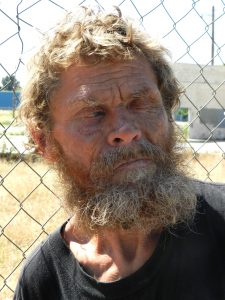The Myth of Drugs

When the musician and entertainer Prince died earlier this year, news that he had overdosed on the powerful opioid Fentanyl stunned his legions of fans. Though reclusive in his private life, Prince was known to prefer a vegetarian diet and healthy lifestyle. Drug use simply didn’t make sense to those who had known him only through his public image.
As his addiction was confirmed, insiders spoke of years-long battles with pain brought on by his energetic performances. He was defended and even lionized for bravery in the face of excruciating agony.
Like almost any celebrity, Prince was not condemned for his drug use. His pain was viewed sympathetically, his early death seen as tragic.
Contrast drug use among homeless people. It’s almost always viewed both as the cause of their homelessness and a character defect. Demonized as addicts, homeless drug users are treated with contempt and deemed deserving of the fate they have freely “chosen.”
In, “Methland: The Life and Death of an American Small Town,” Nick Reding describes in graphic detail what happened to a small Iowa town when it lost its job base to globalization and an economic bust. In Oelwein, Iowa, drugs didn’t lead to an economic disaster, they followed one.
This doesn’t necessarily mean there was a cause and effect relationship. It does mean, however, we should be cautious when blaming homelessness on drug use. As often as not, drug use is a consequence of poverty, not a cause.
Our nationwide opioid epidemic has affected people at all economic levels, but it is the homeless heroin user who evokes horror and loathing. In fact, almost any homeless person will be seen as a drug-user first, a deadbeat second, and a human being rarely.
When Jeb Bush and Carly Fiorina announced that members of their families had suffered from drug use, they both advocated more and better treatment, not contempt and punishment. Decades ago, when former First Lady Betty Ford ‘s addiction to alcohol and opioids was revealed, the primary topic was her highly stressful life.
The lesson for all of us is that it is extreme poverty that brings about contempt and condemnation for homeless drug users. Drug use among celebrities and wealthy people is treated far differently.
Addiction may cut across class boundaries, but only among the poor and vulnerable is it seen as a failure of character. For the Fords, Bushes, and Fiorinas, it’s a health problem demanding sympathy and professional treatment.
The Myth of Family Values

In, “Struggling to Get By,” the United Way presented a carefully researched study of poverty in California. The data show that, “One in three families struggle to meet their basic needs.” In Stanislaus and Merced Counties, the number of struggling families is closer to forty percent.
Homelessness is only the most visible evidence of the extreme poverty that has swept a nation where decades of stagnant wages and rising costs have made it harder and harder for families to make ends meet. Anyone with a few hours and the desire to confirm the facts can find young people in our parks and streets who were born to homeless mothers.
Most of those young people are drug users and have petty criminal records. Consider for a moment the stark differences of their lives compared to the lives of people born into families like the Fords, Bushes, and Firoinas. With fewer options and far less family support, they had far more likelihood of living in poverty.
For decades, American citizens have been told that government can’t help and education and family values are the answer to poverty and crime. But when wages stagnate and the cost of living escalates, families too often fracture and fall apart.
Since the 1980s, the costs of education have risen far faster than the inflation rate. So too have the costs of housing. Rarely have these rising costs been associated with poverty and homelessness. Instead, poor and homeless people are routinely accused of “choosing” poverty.
In October of last year, citing studies by Harvard University and the American Community Survey of 2014, writers for The Fiscal Times concluded that the housing crisis must be addressed at all levels of government:
“Beyond these federal efforts, state and local governments also have an important role to play in fostering a greater supply of affordable housing. In addition to providing public funds for this purpose, these levels of government set land use regulations and policies that have the potential to spur affordable housing production. But all too often, they deter affordable housing production through complex and costly approval processes as well as limits on the types of housing that can be built.”
Other than political activism, there is nothing poor families can do about rising living costs and wage stagnation. Minimum wage levels, outsourcing American jobs, cuts to funding for social services, land use regulations, and the criminalization of drug use are the result of government policies, not family values. No one should be surprised when homelessness is an outcome of such policies.
Next: Part III: The Myth of Government

Thank you for this “Eye opening” article.
Society continues to treat it’s social classes differently based on economic status and the notion that “these” figures have affected us, making the public feel as if we have a intimate connection between us and “them”. No one wants to be associated with the homeless, but give them a lifestyle they’ve fantasized during their lifetime and it’s acceptable for their idols to have fallen “on drug use”. Society will never stop demonizing the homeless until they realize “We are equals” regardless of what we’re wearing.